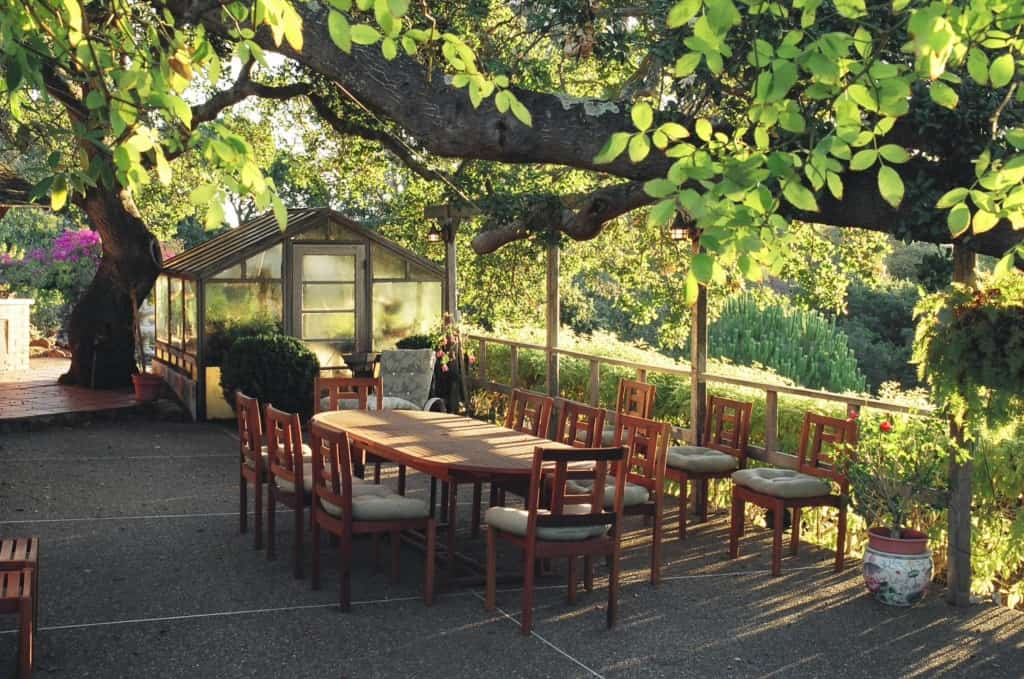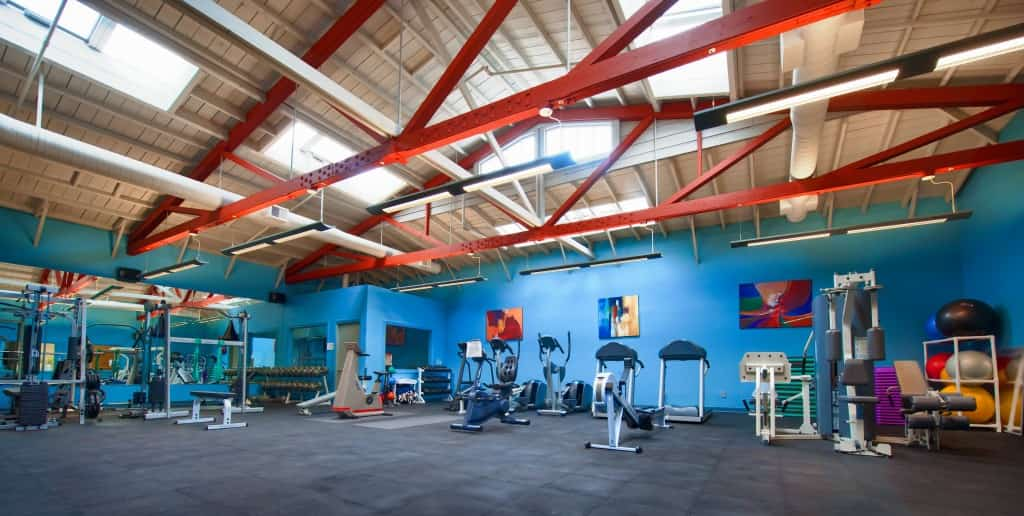Located in the serene hills of San Rafael, Bayside Marin is California’s premier rehabilitation center dedicated to the treatment of Adderall addiction. Bayside Marin blends evidence-based treatments with alternative, holistic modalities to comprehensively treat all aspects of our client’s life.
Learn More About Adderall Addiction Treatment
Learn more about Adderall addiction treatment at Bayside Marin Treatment Center in California
Adderall is a prescription medication that is commonly used to treat symptoms associated with attention-deficit/hyperactivity disorder (ADHD). When used at an appropriate dosage as directed by the prescribing physician, Adderall has proved to be safe and effective. Unfortunately, a variety of factors have led to an increasing prevalence of Adderall for recreational and unsupervised “off-label” purposes, with some experts estimating that as many as one out of every five college-aged individuals have abused Adderall in an attempt to improve their academic or occupational performance.
When ingested, Adderall interacts with receptors in the brain that are involved with the hormones dopamine and norepinephrine. By triggering the brain’s “pleasure centers,” and blocking the activity that regulates the duration of these feelings, Adderall provides users with an extended sensation of alertness, energy, and euphoria. For these reasons, Adderall is commonly abused by individuals who want to get high or who feel the need for a cognitive boost.
Attempting to stop using Adderall or a similar drug after an extended use can be a painful and frustrating experience. However, with proper professional assistance, people who have become dependent upon Adderall can learn to overcome their cravings and pursue long-term abstinence.
How to Help a Loved One
Helping a loved one get treatment for Adderall addiction
Watching a loved one struggle with any form of substance abuse or addiction can be painful and frustrating. The good news is that you can take action that will make a positive difference in your loved one’s life:
- Be honest with your loved one and yourself. Addiction is built on a foundation of lies. Piercing the deception to address to real problem can be a life-changing moment.
- Maintain an active presence in your loved one’s life. Volunteer to drive him or her to appointments; stay in touch via calls, texts, or emails; and otherwise let him or her know that you are there and you care.
- Learn about treatment. Depending upon the nature and severity of your loved one’s substance abuse, viable treatment options can range from a few sessions with a qualified therapist to an extended stay in a residential treatment program. By understanding the scope of services that are available to your loved one, you will be in the best position to offer effective advice.
- Talk to experts. Mental health providers, addiction counselors, interventionists, and even your family doctor can be excellent sources of information to help you understand what options are available for helping a person who has been abusing Adderall or a similar substance.
- Be present, supportive, and reliable. Show support whenever and wherever you can. Share the information that you’ve learned. Help make whatever arrangements are necessary to get your loved one into treatment.
- Do not dwell on past failures or disappointments, and do not look too far down the road. Recovery can be a daunting challenge, which is why “one day at a time” is a common mantra. Be here now, and encourage your loved one to do the same.
- Remain a constant source of encouragement and support for your loved one at all times. Treatment is an important step, but it is just a step. Be there for the long haul.
- Understand that there will be setbacks along the way, and be prepared to help your loved one overcome the obstacles that he or she will inevitably encounter on the path of recovery.
Why Consider Treatment
Why consider treatment for Adderall addiction at Bayside Marin Treatment Center in California
Substance abuse and addiction are profoundly insidious experiences with ramifications that can resonate long after a person has stopped using. Cognitive impairments, emotional damage, disrupted heartbeat, and increased blood pressure are just a few of the many negative side effects that can result from Adderall abuse. In the five-year period between 2005 and 2010, emergency room visits associated with Adderall abuse increased by almost 300%, rising from just over 5,000 visits to more than 15,000. Studies suggest that Adderall abuse may increase a person’s risk of heart attack, stroke, and certain types of aortal damage. When abused by someone who is also drinking alcohol (a very real concern considering the prevalence of Adderall abuse on college campuses) Adderall can mask the effect of the alcohol, increasing the risk of alcohol poisoning and other alcohol-related damage. In addition to struggling with sleep problems and malnutrition (Adderall can also suppress one’s appetite), individuals who abuse Adderall report experiencing increasingly more alarming symptoms of paranoia and psychosis.
Types of Treatment
Types of Adderall addiction treatment offered at Bayside Marin Treatment Center in California
Bayside Marin provides world-class treatment for adults, aged 18 and above, who are struggling with substance abuse/addiction and co-occurring mental health or behavioral health issues. Bayside Marin is dedicated to providing life-changing care in an atmosphere of comfort, support, and serenity. Our science-based, research-supported treatment model features both time-tested techniques and emerging modalities, blended into comprehensive plans that are customized to meet the unique needs of each client.
When clients choose to heal at Bayside Marin, they enter into active collaboration with a team of highly skilled professionals who are dedicated to helping them identify, address, and ultimately overcome the issues that have been preventing them from living happier and healthier lives. Not content merely to alleviate the symptoms of Adderall abuse, the Bayside treatment team focuses developing effective solutions for the underlying issues that have been the root cause of our clients’ distress.
For example, when an individual enters treatment at Bayside Marin, we will develop a holistic course of treatment that incorporates a variety of therapeutic activities that are designed to address both conditions at their fundamental levels. Recognizing that residential treatment is just one step on the path of long-term recovery, our experts ensure that clients have the skills, strategies, and support to continue their recovery after they have returned home.
The following are some of the many treatment opportunities that may be included in a client’s experience at Bayside Marin. This is not intended as a comprehensive list of all services that are available at Bayside; rather, it is designed to reflect the breadth and depth of options that are available to help our clients meet their treatment goals:
Medical detoxification: Clients who have been unable to stop abusing drugs prior to enrolling in Bayside Marin can complete a safe medical detox on our campus. Medical detoxification services at Bayside Marin begin with a consultation and complete assessment, conducted by either a board-certified medical doctor or nurse practitioner. During detox, clients may be prescribed medication as deemed appropriate to make the process as safe and painless as possible. Round-the-clock supervision and monitoring are provided by experienced professionals throughout the entire detox process.
Individual therapy: Individual therapy is one of the fundamental treatment experiences at Bayside Marin. All clients meet with their therapist for one-on-one sessions two times each week, with additional sessions available as needed. During individual therapy sessions, clients have the opportunity to evaluate their progress, identify any issues or concerns they have about their treatment, and receive guidance on how best to address personal obstacles or complications that are preventing them from meeting their treatment goals.
Couples and family therapy: Couples therapy and family therapy are forms of group therapy that are available to Bayside Marin clients on an as-needed basis. All Bayside clients work closely with a primary therapist, who will determine the need for couples or family sessions and who can schedule these sessions. Because we understand the impact that addiction, and co-occurring conditions can have on families and other close interpersonal relationships, Bayside places a premium on providing services that can help heal this damage.
Family program: In addition to providing family therapy sessions as needed, Bayside has also developed a highly effective family program to help spouses, parents, and others address their own needs and prepare themselves to be sources of ongoing support as their loved one pursues long-term recovery. The Bayside family program is a two-day psychoeducational workshop that is offered twice each month. The family program helps loved ones understand the disease of addiction and recognize how they have been affected by their family member’s disorder, then helps them to develop skills and strategies to address both their personal issues as well as their family member’s struggles. In addition to the education offered during family program weekends, the experience is also an invaluable tool for breaking through the isolation that can often accompany addiction and bonding with others who are having similar struggles within their own families.
Group therapy: Group therapy is another core component of treatment at Bayside Marin. Bayside clients participate in several forms of group therapy on a daily basis, which allows them to reap the many benefits of this type of therapy while also learning a great deal about issues and topics that are important to the healing process. Group therapy participants have the opportunity both to receive and provide support, as well as learn from the experiences of others while also sharing insights that they have developed. Group therapy sessions at Bayside Marin will focus on a variety of topics, including self-help techniques, education about the disease of addiction, relapse prevention tips, treatment planning, continuing care planning, and family support.
Experiential therapy: In contrast to traditional individual and group therapy sessions, which usually focus on discussion, experiential therapy is a more active experience. For example, art therapy and therapeutic gardening allow clients to express themselves and address issues via more creative endeavors, while massage therapy, acupuncture, and meditation are designed to promote mindfulness and the mind-body connection. At Bayside Marin, yoga and Qi Gong are available every day, while other forms of experiential therapy are usually offered on a weekly basis.
Continuing Care
Continuing care and levels of treatment for Adderall addiction
At Bayside Marin, planning for clients’ lives after they complete residential treatment starts on the day they arrive. Because most of the issues and disorders that our clients are dealing with necessitate long-term or lifelong recovery efforts, it is essential that we develop treatment plans with an eye toward how best to maintain and enhance their residential progress when our clients return home.
Bayside clients meet with continuing care coordinators within their first week in treatment, and touch base with them on a regular basis throughout their time with us. By the time they have completed the residential phase of their treatment, all Bayside clients will have comprehensive continuing care plans in place. Depending upon the unique needs of the client, these plans may include referrals to community based resources, appointments with counselors or therapists, participation in local support groups, and other such details. The goal for this intensive planning is to make the transition from residential care to post-residential recovery as seamless and successful as possible.
But the continuing care support provided by Bayside Marin does not end with the development of this plan. For 12 months after their discharge, Bayside clients receive recovery monitoring, life coaching services, and other forms of support to help them build a solid foundation for lifelong recovery. All services during the 12 months of continuing care support are determined and provided on a case-by-case basis, and are customized to reflect the unique strengths and needs of each client.
When clients who have completed treatment feel that they need some additional support in their recovery, our Recovery and Renewal program allows them to return to our program for day or two. By participating in the therapeutic milieu and connecting with others in the Bayside recovery family, program alumni can get the essential boost that they need to stay strong in their recovery.
Why Choose Bayside Marin
Why choose Bayside Marin for Adderall addiction treatment
When clients choose Bayside Marin, they do not just enter a treatment program – they join a healing community that is dedicated to helping them achieve long-term recovery. Residential clients, program alumni, and family members both benefit from and contribute to this vibrant and dynamic community, which extends far beyond the borders of the Bayside campus and which offers a lifelong source of life-affirming support.









